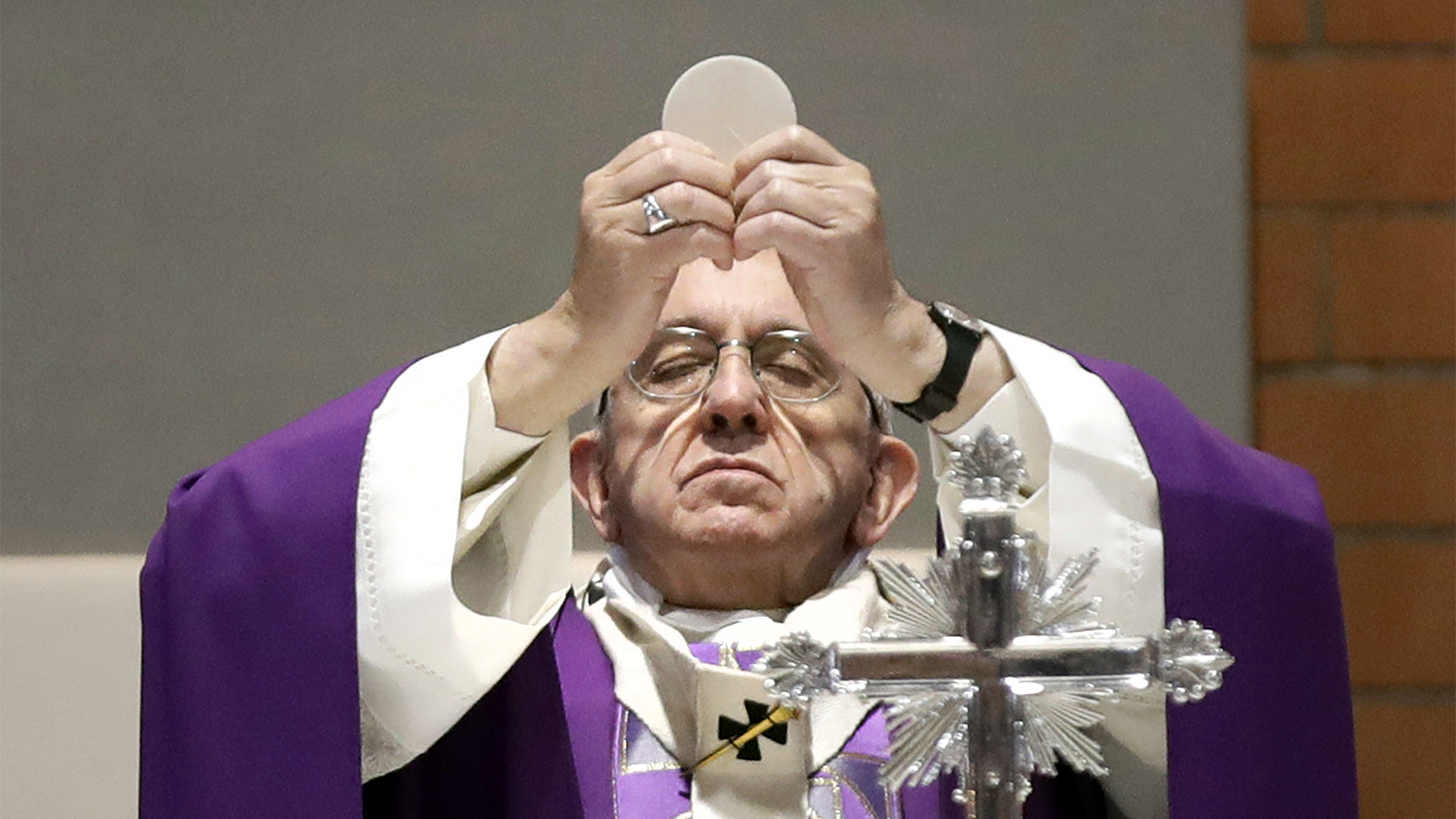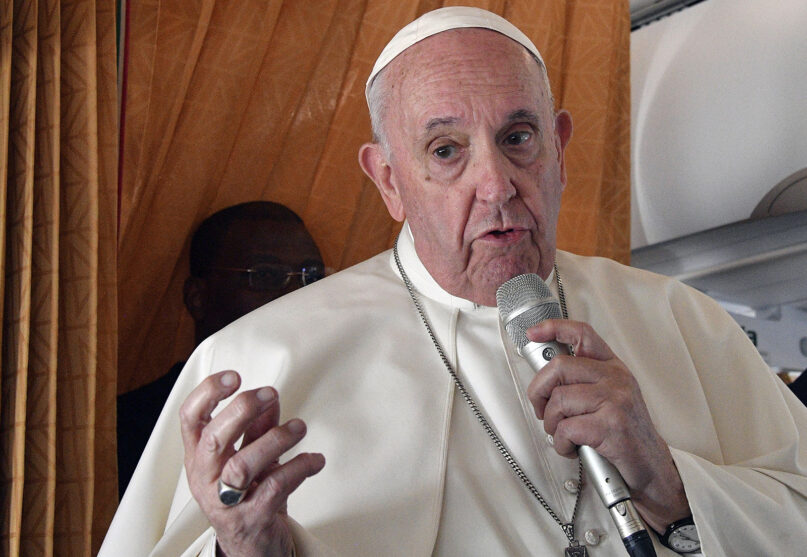VATICAN CITY (RNS) — Flying home from his papal visit to central Europe on Wednesday (Sept. 15), Pope Francis weighed in on the debate about whether Catholic politicians who support abortion rights should be denied Communion, stating that he has never denied the Eucharist to anyone and that the issue should be handled in a pastoral way.
“If we look at the history of the church, we can see that every time the bishops did not act like shepherds when dealing with a problem, they aligned themselves with political life, on political problems,” the pope said in the customary conversation with journalists who traveled with him.
Francis also spoke in support of vaccination, pointing to past vaccines’ success in saving people from polio and other diseases. “In the Vatican, everyone is vaccinated, except for a small group we are trying to help,” he said.
Echoing portions of his message to Catholics in Slovakia and Hungary, the pope emphasized the need to not politicize faith and urged bishops to “be a shepherd” by exercising “closeness, compassion and tenderness.”
RELATED: Pope calls on world to welcome refugees and immigrants
Last summer, bishops in the United States discussed whether Catholic politicians who support abortion rights, including President Joe Biden, should be denied Communion for their views. The U.S. episcopacy is currently working on drafting a document on “Eucharistic coherence,” amid concerns that American Catholics are not properly formed on the sacrament. Bishops are expected to vote on the document in November.
Francis did not get into the details of the discussion taking place in the U.S. but chose to address only “the principle of the matter.” The pope vehemently said he never denied Communion to anyone, adding that while he doesn’t know if Catholics who support abortion rights ever asked him for Communion, he has “never refused them the Eucharist, since the time I was a priest.”
The pontiff was clear on his anti-abortion stance, saying that the embryo is “a human life” and that “abortion is homicide.” He praised Catholic activism against abortion, because abortion “is a bit as if daily murder was accepted,” he said.

Pope Francis holds up the host as he celebrates Mass in San Gelasio parish church in the Ponte Mammolo neighborhood of Rome on Feb. 25, 2018. (AP Photo/Alessandra Tarantino)
Drawing on a now-famous framing of the sacrament from his 2013 apostolic exhortation, “Evangelii Gaudium” (The Joy of the Gospel), Francis said on the flight that “Communion is not a prize for the perfect” but a “a gift” marking the presence of Jesus in his church and community.
Communion, he added, “is linked to the community.”
In line with his efforts to reform the power structures in the church by insisting on pastoral proximity over doctrinal authority, Francis said that it’s up to the pastors to “know how to act in every moment.”
Especially when it comes to those who have drifted from the Catholic faith, he said, pastors must remember that they “are sons of God and they need our closeness.”
Francis mentioned the “storm” that followed his 2016 apostolic exhortation “Amoris Laetitia,” which opened the door for divorced and married couples to receive Communion. The break with an established teaching was deemed “a heresy” by some in the church.
“These are poor people who are temporarily outside, but they are children of God and need our pastoral action,” he said.
When it comes to LGBTQ Catholics, the pope stated that marriage according to the Catholic church is between a man and a woman, but he showed support for countries granting gay couples “security” and “stability” through civil unions.
RELATED: In Slovakia, Pope Francis urges courage in young generations
During his visit, traditional family values were at the heart of the discussions between Francis and Hungarian Prime Minister Victor Orban, who have opposing views on Europe’s migration crisis. While Francis has called for the integration of immigrants, Orban has energetically blocked people trying to enter Europe from Syria and northern Africa.
But the pope told reporters aboard the papal flight that migration was off the table during his meeting with Orban, which focused on the family and the protection of the environment. He praised Orban’s policies in support of young people and families.
The pope admitted to being “much more tired” on this trip, which took place after he underwent surgery in July. Francis plans to attend the COP26 summit in Glasgow, Scotland, in November and hopes to travel to Greece and Cyprus in December.





